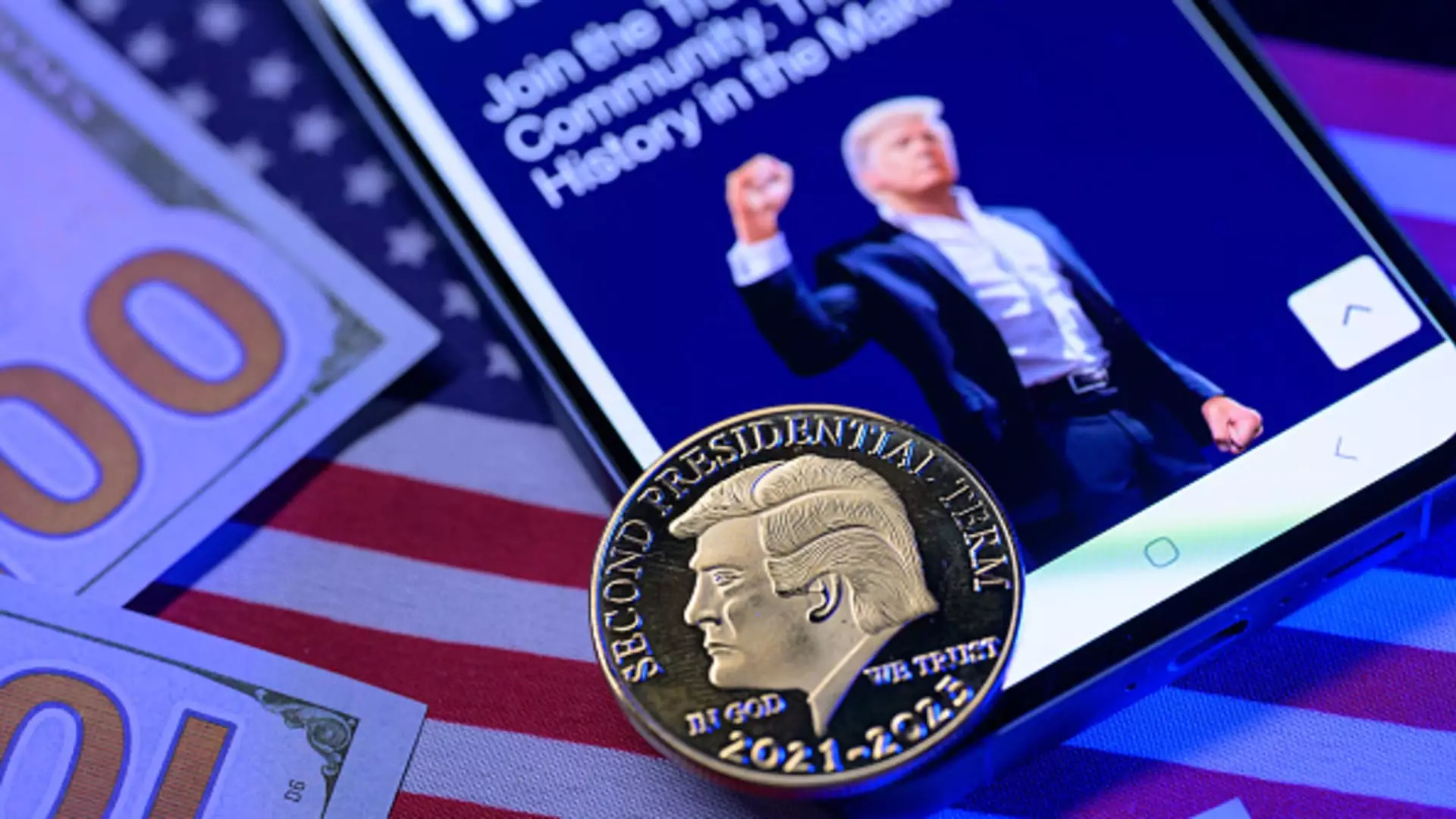As anticipation builds for President Donald Trump’s exclusive dinner with the top holders of his meme coin, $TRUMP, a veil of anonymity shrouds many of these investors. Scheduled for May 22 at Trump’s Virginia golf club, the event draws intrigue beyond mere luxury; it raises ethical questions about the identities and motivations of these crypto players. The digital currency world is notorious for its pseudonymous wallets, making it difficult to ascertain who really wields the financial clout behind this token. Documents from blockchain analytics firm Inca Digital reveal a tangled web of cryptocurrency transactions, with many top wallets seemingly tied to international exchanges, primarily those that eschew U.S. customers like Binance.
A Bloomberg analysis strengthens this suspicion: of the top 25 wallets, 19 show evidence of being controlled by foreign entities, sparking concerns about the influence of non-U.S. interests in American political discourse. The opacity surrounding these wallets indicates a deeper issue that challenges not just crypto regulations but the very fabric of fair governance.
Heavyweights in the Crypto Arena
Among the most notable figures in this mix is Justin Sun, the controversial entrepreneur and founder of the Tron blockchain. By investing $75 million in what he describes as the Trump family’s World Liberty Financial token—where a staggering 75% of proceeds head directly to Trump-related entities—Sun appears to be placing a strategic bet on the political landscape. His wallet, believed to hold upwards of $18 million in $TRUMP tokens, raises eyebrows concerning foreign influence and financial motivations behind tomorrow’s global leaders. While Sun has not publicly confirmed the ownership of this wallet, the implications of his investment choices are hard to ignore.
Meanwhile, organizations like MemeCore, based in Singapore, are flexing their economic muscles to secure a seat at this high-profile dinner table. Initially considered a bold advertising maneuver, it’s become a worrying trend as foreign entities seek to entrench themselves into the U.S. political narrative through cryptocurrency.
The Dichotomy of Wealth and Loss
The glaring disparity in wealth accumulation represented by the $TRUMP token cannot be overstated. Data from Inca Digital reveals that a staggering 560,376 wallets have realized a collective gain of $5.2 billion, while an even larger cohort of 592,962 wallets recorded losses totaling $3.9 billion. This stark divide illustrates an ongoing wealth transfer within Trump’s own crypto ecosystem, where early adopters are reaping immense profits while the majority grapple with financial loss.
Such volatility is not just a statistical anomaly; it paints a vivid picture of the risks and rewards that come with betting on political figures through cryptocurrency. Inca Digital’s report serves as a cautionary tale, warning would-be investors to meticulously scrutinize not just the numbers but the financial ecosystems in place that cushion the wealthy while leaving the less privileged exposed.
Impact of Political Connections on Cryptocurrency
The intersection of politics and cryptocurrency takes another alarming turn with the introduction of companies like Freight Technologies. With a mere market cap of $2.3 million, the Houston-based firm invested $2 million into $TRUMP tokens to allegedly influence U.S.-Mexico trade policy. CEO Javier Selgas framed this move as a strategic effort to “champion fair and free trade,” but the subtext raises serious ethical questions about how corporate interests can leverage political connections through digital currencies.
The dynamic presents a concerning scenario where the boundary between investment and influence blurs under the cloak of cryptocurrency’s inherent anonymity. As reported by Senator Richard Blumenthal, there’s a legitimate fear that the Trump family’s increasing crypto portfolio could act as a gateway for foreign and corporate entities trying to obtain closer ties to government.
The Roller Coaster Ride of $TRUMP Token Value
Launched just before President Trump’s inauguration, the $TRUMP token initially lifted off with promises of grandeur, achieving a market cap of $15 billion almost overnight. Trump himself amplified this momentum via Truth Social and X, touting slogans of “WINNING.” However, this meteoric rise quickly transformed into a nosedive, with the token losing significant value following its peak. Although a brief resurgence occurred in April—a mere spike fueled by speculation surrounding the upcoming dinner—the volatility has raised questions about its long-term viability.
The $TRUMP token encapsulates the complex interplay of finance, politics, and technology, pointing toward a landscape rife with both opportunities and challenges. As the dinner approaches, we are faced not only with the celebration of wealth but also with the pressing need to address the risks it poses in the broader context of governance and influence. The future of $TRUMP may well serve as a bellwether for the evolving relationship between cryptocurrencies and political power in America.


Leave a Reply